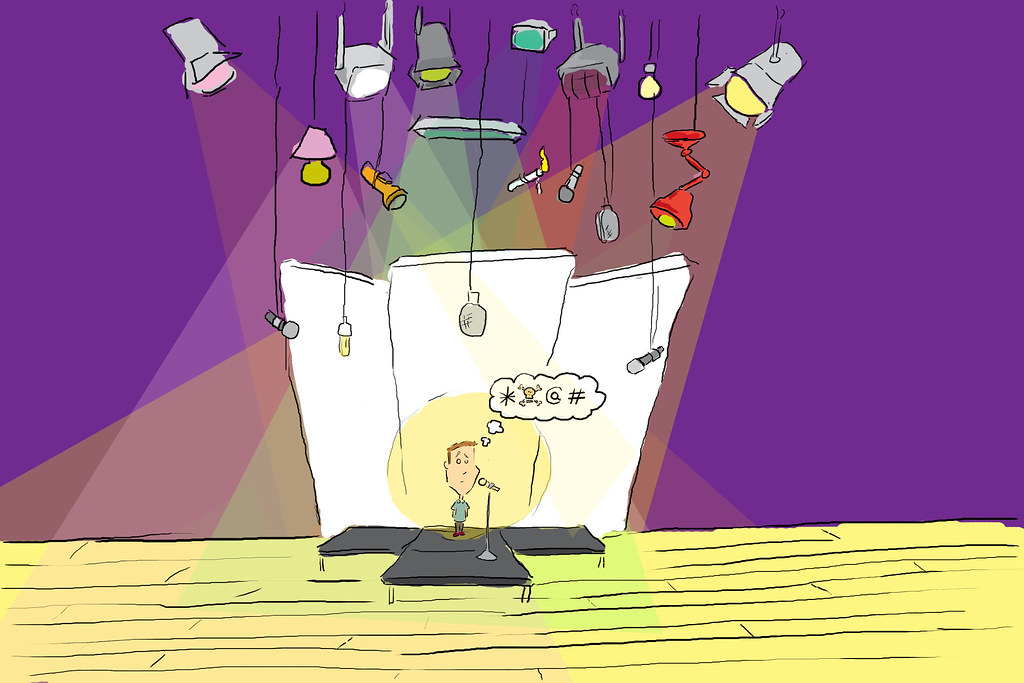It was New Year’s Eve and I was with my colleagues at the annual office party. I was told that I would be the one thanking the organizers on behalf of everyone. Busy with work, I didn’t really pay much attention to this task and thought I could just wing it. But, when the time came, my heart started racing, my mouth became dry, and my vision became hazy. To this day, I don’t know how or what I actually said that day.
That was not a one off incident either. Addressing crowds seems to be a huge part of every job I’ve had – from training staff in computer basics to working as an interpreter in my community and experiencing various degrees of stage fright on a regular basis has become part of my life. For the past 10 years, I’ve been learning as much as possible about what stage fright is, why does it occur, what actually happens during and what some ways to overcome them are. Like millions of other people, I suffer from stage fright.
So just what is stage fright? According to ADAA, “those who are filled with feelings of dread and panic, degree of nervous apprehension when preparing to speak up or perform in front of a group] may be suffering from a form of social anxiety disorder” called stage fright. Stage fright isn’t something that is only limited to happening in front of large audiences (on stages) but anywhere the person might be the center of attention.
Shara Sand, clinical assistant professor of psychology at New York's Yeshiva University says that stage fright represents the fight or flight response. The fight or flight response triggers physiological responses like sweaty palms, racing heart, adrenaline (also called the fight-or-flight hormone) production, which leads to shakiness – these are the symptoms of someone experiencing stage fright. No doubt, this response has played an important part in the survival of humankind since prehistoric times. When we face something that our brain interprets as a dangerous situation, this response is triggered. So when we are the center of attention and we know that we are being judged, this is perceived as a dangerous situation as it affects our position in the social structure. Thus, understanding the physiology of stage fright is the basis for overcoming stage fright.
References
Goldberg, J. (2015). Stage Fright (Performance Anxiety). Retrieved July 11, 2017, from http://www.webmd.com/anxiety-panic/guide/stage-fright-performance-anxiety#1
Esposito, J. (n.d.). Conquering Stage Fright. Retrieved July 11, 2017, from https://www.adaa.org/understanding-anxiety/social-anxiety-disorder/treatment/conquering-stage-fright
Enright, P. (2007, December 9). Pulling back the curtain on stage fright. www.nbcnews.com. Retrieved July 11, 2017, from http://www.nbcnews.com/id/20631646/ns/health-mental_health/t/pulling-back-curtain-stage-fright/#.WWUmUFGQypo
https://c1.staticflickr.com/4/3252/2814951286_f2246ac6d5_b.jpg

No comments:
Post a Comment